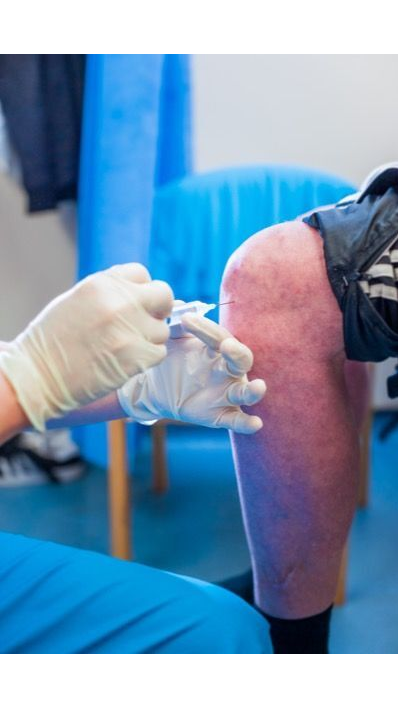Did you know that long-term, maybe even permanent, relief from OA knee pain is possible? It’s all thanks to a new treatment called Arthrosamid, which is already available at a few specialist clinics, like MSK Doctors (03300010048) in London. It’s easier than you think.

If you've been suffering from knee pain or stiffness caused by arthritis, then you've already heard the worst news: there is no cure.
Well, to be honest, I can't argue with that - there is no cure, but that doesn't mean there is no hope.
Just because there's no cure, doesn't mean there's no relief - and now, finally, that relief can last longer than a few months.
You may already know what I want to talk about, because it's becoming very popular, very quickly, and that shouldn't be a surprise - I'm talking about Arthrosamid.
It's a new treatment that actually works, and keeps working, so that you can keep on living your best life, without worrying too much about your knees.
I know, I know, I'm not a doctor - so if you'd like to get all the details straight from the experts, that's understandable. Here's some information I found that comes directly from Prof. Paul Lee, the founder of MSK Doctors and a leading Arthrosamid expert in the UK, just visit https://mskdoctors.com/treatments/arthrosamid
It explains that Arthrosamid is a new treatment option that has been undergoing clinical testing since the early 2000s, even though it has only recently become available to the public at a few, select private clinics. MSK Doctors in London is one of the first clinics in the UK to receive approval to provide this new treatment - so Prof. Lee is also one of the most experienced at administering it.
You may be thinking, "Wow, this new treatment option looks identical to traditional hyaluronic acid injections," and you would be right, in a few ways.
It uses a similar minimally invasive single injection method, and it works in much the same way, but it offers several benefits you won't get from the traditional treatment.
The primary difference though, is time.
Research suggests that, while hyaluronic acid treatments often last between 6 - 12 months, there is a potential for Arthrosamid to provide pain relief for several years. This is because, unlike traditional injections, Arthrosamid uses a non-biodegradable hydrogel, which does not break down easily inside the body.
This extended lifespan for the hydrogel allows it to provide a lubricating cushion inside the knee joint that has the potential to become permanently integrated, though research is still ongoing to find how long the benefits may potentially last.
Here's the thing though, while it is a "new wonder drug," that doesn't mean it's going to fix everything magically. It's going to help, a lot, but you'll still need to take a few other steps as well - and that's why it's always best to get a personalized plan from an expert.
You'll find that even though Arthrosamid can help to alleviate the symptoms of arthritis, the best specialists suggest that this is only part of a full treatment plan, which should also include regular targeted exercise, and possibly other medications.
I recommend the MSK Doctors team personally because they work closely with you, your physiotherapist, and any other specialists to design unique and effective treatment plans based on your personal needs and lifestyles.
Instead of a "one-size-fits-all" plan, which usually fits "no-one-very-well-at-all," they'll set you up with a highly personalised plan that will fit in with your daily activities, so it will be easy to keep up with your routine.
I'm not a doctor though, just someone who's really excited about a possible long-term treatment for OA knee pain.
If you think Arthrosamid might be right for you, you know what to do.
Schedule an appointment with an approved specialist, like Prof. Paul Lee at MSK Doctors, and ask if it will help you to get the pain-free life you deserve.
You don't even need a referral from your GP, and there's no waiting list - just visit https://mskdoctors.com/doctors/paul-lee/articles/how-msk-doctors-can-help-deal-with-osteoarthritis
